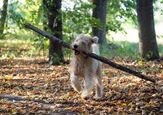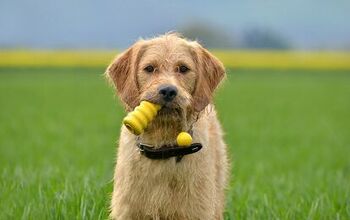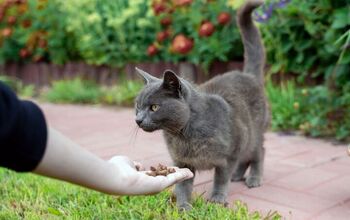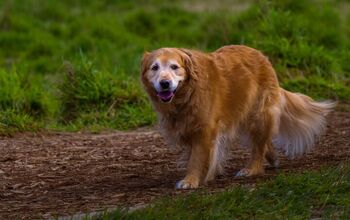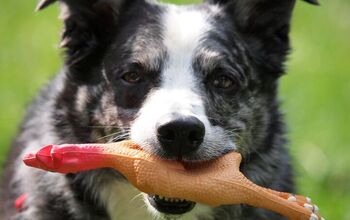Weimaraner


About Weimaraner
Tell someone you own a “Weimaraner” and there’s a decent chance they might not know what you mean. But that’s okay. However, show the same person your dog and they’ll say “Oh, sure – I know that breed!” It’s hard to get past the Weimaraner when you’re talking about friendly, confident dogs that are perfect to play with.
But what is it about the greyish, monochromatic Weimaraner that attracts so many people as pet owners? Is it just a matter of the personality? As you’re about to find out, many dogs have a unique personality, but it’s the Weimaraner that really delivers both as a companion and as a pet, especially for a dog with a relatively large size and of such unique athletic abilities. Perhaps this is what made the “Grey Ghost” a favorite with nobility and royalty over the years. Known for its ability to maintain composure at great speeds, the Weimaraner is a true hunter and some have even suggested that the original Weimaraner dogs were bred to hunt lions.
The Weimaraner may sound like a funny and unique breed, but really it can be one of the most versatile types of dog out there. Let’s take a closer look at what makes the Weimaraner different from all of the other breeds you’ve been considering for you and your family.
It’s hard to get past the Weimaraner when you’re talking about friendly, confident dogs that are perfect to play with.
The history of the Weimaraner is not well-known simply because it dates back many years ago. Some have suggested that the original Weimaraners were bred to hunt lions, but this might be a myth – there’s no real verification about this fact.
The American Kennel Club notes that the Weimaraner was originally the Weimer and had been bred in Germany some time ago. Possibly a descendant of bloodhounds, it was bred for hunting purposes and was developed to have an athletic, agile build with enough strength to present it as a formidable force out in the fields and forests.
The pedigree of the Grey Ghost isn’t totally known, but many people believe that the Weimaraner descends from blood hounds and similar breeds. Originally bred to hunt big game like wolves, deer, and even bear, we can assume that the Weimaraner came from healthy, well-sized stock and possibly was developed and bred from ancestors of a similar build in the hound category. Today’s Weimaraner dogs are strong and agile and its overall build suggests similarities to hounds in a number of groups.
A hunter by instinct, the Weimaraner likes a good piece of meat as much as any dog, but can also go for whole foods like vegetables. Kibble can be flavored with some fat or meat to entice these dogs, and keep in mind that it’s important to meet its appetite needs and not let it feel starved throughout the day.
The Weimaraner may sound like a funny and unique breed, but really it can be one of the most versatile types of dog out there.
With a high propensity toward hunting activities, the Weimaraner can be strong and obedient. They should not necessarily be trained like Golden Retrievers – a hunting dog that’s friendlier toward strangers – but should be properly socialized so that they know the world doesn’t revolve around your piece of land or your family. Its loyalty can be tricky, so be sure to be relaxed and give your dog plenty of opportunities to socialize with other dogs as it grows up so that it can learn the proper methods of socialization.
Large and strong, the Weimaraner can weigh up to around 70-80 pounds in males and between 55-70 pounds in females. Don’t let it relatively high weight fool you, as it’s important to realize that these pets come with a lot of speed relative to its size. This gives them an extra bit of oomph if you’re ever out playing with one in an open field.
As mentioned, the Weimaraner is a typical hunting dog in many respects, but isn’t quite the socializer or friendly personality that the Golden Retriever might be. The Weimaraner is more aloof and territorial, especially around other dogs, so it’s important to remember that Weimaraners are often more suited for a spacious country life rather than exercising at parks in the city.
Weimaraners are very intelligent and more advanced trainers really appreciate this, especially given the fact that Weimaraners can be a bigger challenge. As a relatively aloof breed in some ways, discovering ways to use this dog’s intelligence can unlock other positive aspects of its personality.
Unlike some other larger breeds, dysplasia and joint problems are not a major concern for the Weimaraner, although such things should always be monitored nonetheless. Because of its deep chest, these dogs can have a higher propensity toward bloating or a condition known as gastric torsion, which can lead to death if left untreated.
Expect a life expectancy of around 9-15, typical for a dog of this size.
With a lot of speed comes a high tolerance to exercise, so be sure to give your Weimaraner plenty of space to roam around in. This is another reason this particular breed is so well-suited for the country life.
The Weimaraner is more aloof and territorial, especially around other dogs.
Says the American Kennel Club: “Lauded for his ability to work with great speed, fearlessness and endurance when on the hunt, the Weimaraner is also known for being an easily trainable, friendly and obedient member of the family.”
A relatively short coat means low maintenance required. The characteristic grey coat has given rise to the term “Grey Ghost” to describe this breed.
Weimaraners can be energetic as puppies, so it will take a considerable amount of patience to train them as they grow up.
Photo credit: Eric Isselee/Shutterstock

Amy Tokic, Editor of PetGuide.com, is a passionate animal lover and proud pet parent of Oscar, a Shih Tzu/Chihuahua cross, and Zed, a Japanese Chin. Her love of animals began in kindergarten, when she brought her stuffed dog Snoopy into class with her every day. Now, she writes about her adventures in pet ownership and tirelessly researches products, news and health related issues she can share with other animal enthusiasts. In her free time, Amy loves perusing used book and record stores, obsessing over the latest pet products available and chasing squirrels with wild abandon (a habit attributed to spending too much time with her pooches).
More by Amy Tokic
